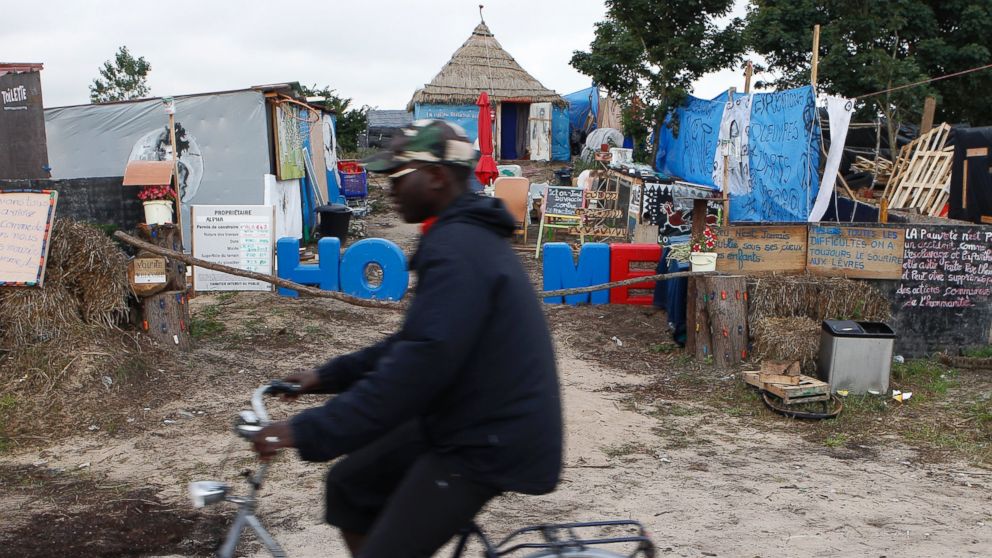Why Business Is Thriving in French Migrant Camp
"The Jungle" shows signs of permanency for some resourceful entrepreneurs.

LONDON— -- A dozen businesses have opened in a makeshift refugee and migrant camp near Calais, northern France, where at least 3,000 are living. Among them: restaurants, delis and even a nightclub.
Known as “The Jungle,” the camp, which opened in April, is becoming more and more organized compared with camps set up nearby in the past decade, one aid worker told ABC News.
“This new camp is different,” said Christian Salomé. “It’s much bigger and people are not hiding like they used to.”
The majority of the camp dwellers are from Eritrea, Afghanistan and Somalia, who crossed the Mediterranean Sea, often in dangerous conditions. Once in Italy, they continued their journey up north to Calais, where they try stowing away on trucks crossing the Channel Tunnel to reach the United Kingdom.
However, French and British authorities recently established more controls to try and prevent them from crossing the channel, with improved fencing, CCTV and more security guards.
As a result, life in the nearby camp has become more permanent -- at least for some, aid workers say.
“It started naturally,” Salomé said. “The closest supermarket is nearly 3 miles away and not everyone can walk that far, so people started purchasing items for others and selling them.”
“They’ll sell toothpaste, razor blades, small things,” Salomé said. “One restaurant now makes chicken and fries! It’s definitely a competitive market.”
One of the incentives, Salomé explained, is that those seeking asylum in France often have to wait 6 months, and sometimes as long as 18 months.
“Opening up a business enables them to survive a bit better during that time,” said Salomé, who goes in the camp every day and has been working with refugees and migrants for seven years. He describes these as “survival businesses” but said they also create a “town feeling.”
“There’s a bike repair shop, a barber shop, and of course a school, churches and mosques,” another aid worker, Sylvie Desjonquères, of the charity group Emmaus France, told ABC News. Most businesses are run by Afghans and Eritreans.
"Better to do something than nothing," one restaurant owner, Sikander, told the BBC. "I started with just potatoes and bread.” Now with three business partners, the Afghan said he feeds up to 100 people a day.
People in the camp are in desperate need, said Salomé, who works for a nonprofit group called L’Auberge des Migrants. “With the winter arriving, it’s going to get worse,” he added.
“The demand here is exploding,” Desjonquères said. “We feel a little helpless.” Last winter, Emmaus France made a pledge of bringing at least 6 truckloads of survival kits to the camps each month during the winter. Back then, the number of migrants and refugees was half of what it is today.




